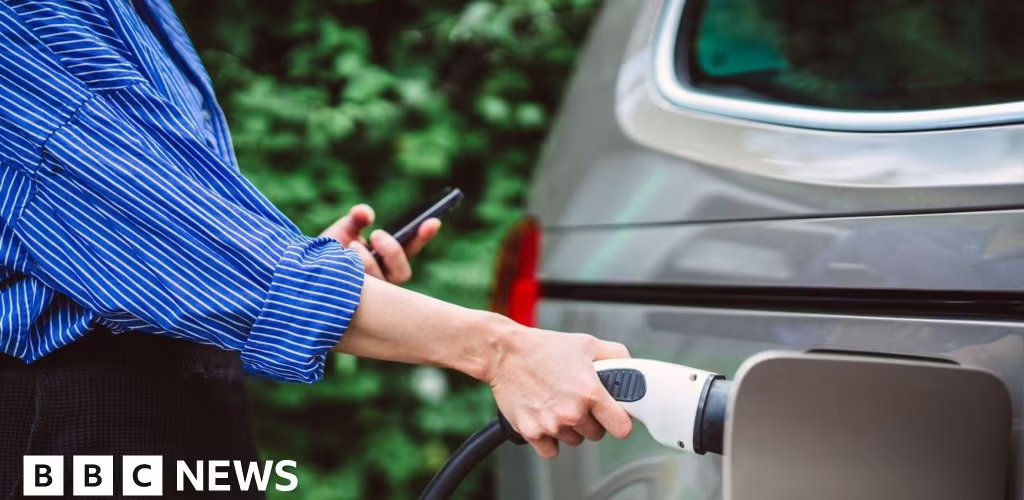EV grant scheme boost worth £1.3bn expected in Budget
BBC | 23.11.2025 05:38
The government is expected to announce an extra £1.3bn in funding for a scheme encouraging the use of electric vehicles (EVs) at next week's Budget.
The Electric Car Grant scheme started in July as part of the move to zero emission vehicles. The government says it has helped 35,000 switch to EVs.
Early research, however, suggests there is little indication the scheme has attracted entirely new buyers.
There will also be money to create more charging points, and a consultation on helping people without driveways to charge their cars.
But it is also possible EV owners could face a new tax elsewhere in Wednesday's Budget in the form of a pay-per-mile charge in future.
All new cars will have to be electric or hybrid from 2030, when a ban on the sale of new petrol and diesel cars comes into force.
The Electric Car Grant scheme, which provides a discount of up to £3,750 on eligible vehicles, was launched with an initial fund of £650m.
New AutoMotive, a non-profit organisation supporting the UK's transition to electric vehicles, found in a recent study that the scheme had yet to expand the market for EVs.
EVs covered by the scheme made up 23.8% of new registrations in September, the same as their share before the Electric Car Grant was announced, New Automotive said.
"It isn't yet clear that it's prompting consumers to consider buying cars that they wouldn't have gone ahead and bought anyway," David Farrar, policy manager for New AutoMotive, said at the time.
The Budget is also expected to announce a further £200m for speeding up the rollout of chargepoints across the UK.
Data from Zapmap shows almost 87,000 points across the UK, in about 44,000 locations. Those include places like supermarket car parks and lamppost chargers.
"The proposed funding will support the creation of thousands of chargepoints and provide extra resources for local authorities to ramp up charging infrastructure on local streets - making it easier for everyone to access reliable charging, including those without off-street parking," the government said.
Chancellor Rachel Reeves, it added, was "expected to publish a consultation on Permitted Development Rights to make it easier and cheaper for people without a driveway to charge".
However, it is also possible that EV owners could face a new tax in the Budget in the form of a pay-per-mile charge from 2028.
A government spokesperson told the BBC earlier this month: "Fuel duty covers petrol and diesel, but there's no equivalent for electric vehicles. We want a fairer system for all drivers."
Reeves is being urged not to raise taxes on drivers overall, with campaigners preparing to deliver a petition to Downing Street early next week which calls for fuel duty, long frozen, not to be increased.
Richard Holden, the shadow transport secretary, said that "handing out £1.5 billion in EV subsidies while hard-working taxpayers are squeezed dry" was "madness".
"Ordinary families are facing increased taxes and spiralling inflation under Labour, yet the Government's priority is handing out discounts on new electric cars," the Conservative MP said.
Reeves is expected to increase some taxes in the Budget after saying she means to bring down NHS waiting lists, the national debt and the cost of living.









